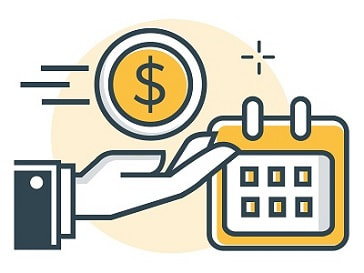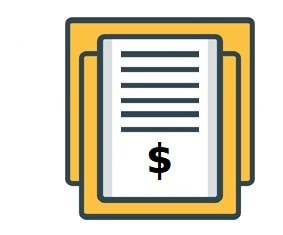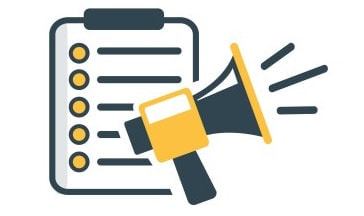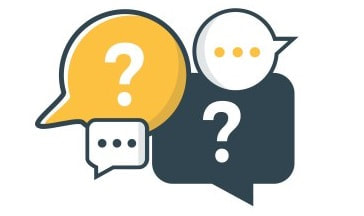Unclaimed Money in New Zealand
Our guide explains what unclaimed money is, the process of putting in a claim for unclaimed money, must-know facts and frequently asked questions about unclaimed money, and a breakdown of the most popular organisations that deal with unclaimed money.
Updated 19 August 2022
Summary
Know This First: Recent changes to Unclaimed Money in New Zealand
To help you understand what's available, our guide covers:
Summary
- The process and rules regarding unclaimed money have recently changed.
- Our guide explains what unclaimed money is, the process of putting in a claim for unclaimed money, must-know facts about unclaimed money and a breakdown of the most popular organisations that deal with unclaimed money. We also walk through frequently asked questions regarding unclaimed money.
- We have published other related guides that you may find helpful - 8+ Ways to Get Free Money From the Government and Free Financial Products.
Know This First: Recent changes to Unclaimed Money in New Zealand
- The Inland Revenue (IRD) have modified how unclaimed money is treated in New Zealand, following a significant change to the Unclaimed Money Act 1971 in 2020. As of 2020, the government has made collecting unclaimed money much less complicated and reduced the burden on third-party establishments or groups to comply with the rules.
- When this change was made, approximately $200 million in unclaimed money was held by the New Zealand government at the start of 2020. In the first 11 months of 2019, the New Zealand government had returned only $2.4 million of cash to its rightful owners.
- The law and process changes are designed to ensure easier and faster distribution to the rightful owners.
To help you understand what's available, our guide covers:
What is Unclaimed Money?
Unclaimed cash is cash held by a third-party (typically an organisation such as a lawyer, a bank or the person who found that cash) where the original owner, or any person who has the authority to request on behalf of the owner, can’t be found. Typically, amounts above $100 are considered eligible to become unclaimed money under New Zealand legislation.
The legislation is less clear when dealing with amounts under $100, but the owner still has a residual claim. There are tax considerations when considering claiming less than $100, details of which can be found here.
The legislation is less clear when dealing with amounts under $100, but the owner still has a residual claim. There are tax considerations when considering claiming less than $100, details of which can be found here.
When does money become “unclaimed?”
- Money turns into “unclaimed money” after it’s been held for a certain length of time in holding entities such as insurance corporations, banks or government bodies.
- Specifically, after these organisations have tried and failed to locate the owner of the money (or anyone with the authority to act on the owner’s behalf), the money becomes “unclaimed”. Money is typically considered unclaimed after five years. Sometimes, it can be less than five years before the money is considered unclaimed.
What happens to Unclaimed Money?
In most cases, if the owner of the cash isn’t found, it can be transferred to a government organisation to manage (if it isn’t with them already). These organisations include the Inland Revenue (IRD), the Treasury and the Public Trust. The length of the period before it’s transferred will depend on the amount of money in question and the number of attempts made by organisations to find the owner.
What are the most common reasons for unclaimed money?
The list of typical establishments that hold unclaimed money on behalf of New Zealanders includes:
Organisation |
Example |
Banks |
Deposits are held on behalf of customers that are either unable to be contacted or are deceased |
Lawyers |
Funds are held in escrow, awaiting a transaction to close. The transaction doesn’t go through, but the owner of the funds are unable to be found or contacted |
Sharebrokers |
NZX or Link Market Services holding funds to disburse without a bank account to send the funds to |
Property Agents |
Funds remaining from a property mortgage purchase or transfer and the bank account provided is invalid, or the owner cannot be contacted |
Insurance Companies |
Insurance payout cash leftover by insurers, but the claim occurred many years ago, and the customer’s details are no longer up to date |
Used Car Vendors/Auctioneers |
Something is sold, but the buyer cannot be contacted |
Liquidators |
Residual cash is generated from selling off assets many years after the company has been liquidated, resulting in difficulty finding the original owner |
Utility Companies |
Customers owed a refund for paying more than their utility bill |
New Zealand Government |
All residual unclaimed money that hasn’t been claimed in five years will likely be sent to the IRD or the Treasury |
Where can I go to Collect Unclaimed Money?
In the first instance, reaching out to the organisation you think owes you the money is best. However, after enough time has lapsed, the funds have probably been passed off to a crown entity after enough time has elapsed. The main government organisations to contact for unclaimed money are The Inland Revenue, The Treasury and The National Provident Fund.
1. Inland Revenue (IRD)
The Inland Revenue has an internal department that organises and manages unclaimed money. They hold unclaimed money from many different sources. Some common examples include:
The IRD has set up an online directory to make it easy to search through unclaimed cash information, which you can find here. Then, with proof of identification and relevant documentation showing your connection to the unclaimed cash, you can put in a claim for a specific amount of unclaimed money. If your claim is successful, IRD will pay the cash into the bank account of your choice.
2. Treasury
The Treasury holds unclaimed cash from:
The best way to pursue unclaimed trust money from the Treasury is to email them through this address.
3. National Provident Fund
Before KiwiSaver was established in 2007, the National Provident Fund (the “NPF”) existed. The NPF was a government-guaranteed superannuation scheme for individuals and ran employer-based schemes for non-departmental public region employers, such as neighbourhood bodies and public boards. A trustee board manages the scheme and the investments of the Fund National Provident Fund, and the day-to-day administration is supplied via Datacom Employer Services Limited. Money in the National Superannuation Scheme of the 1970s used to be transferred to the National Provident Fund upon the dissolution of that scheme.
The Board of Trustees of the NPF holds cash on behalf of participants with whom contact has been lost. This cash was likely contributed to an NPF superannuation account in the 1970s, and contact was lost once people moved jobs and lost contact with the NPF Scheme administrator. If you think you have a claim on some of this cash, you can find more information on the NPF scheme here.
1. Inland Revenue (IRD)
The Inland Revenue has an internal department that organises and manages unclaimed money. They hold unclaimed money from many different sources. Some common examples include:
- Unclaimed cheques (cheques that have been written, however, have now not been paid by using the bank)
- Unpaid wages and benefits to employees
- Money held in solicitors’ trust accounts
- Deposits in banks and monetary institutions
- Unpaid wages and worker advantages that have been held via the business enterprise for extra than six years
- Proceeds of lifestyles insurance plan policies.
The IRD has set up an online directory to make it easy to search through unclaimed cash information, which you can find here. Then, with proof of identification and relevant documentation showing your connection to the unclaimed cash, you can put in a claim for a specific amount of unclaimed money. If your claim is successful, IRD will pay the cash into the bank account of your choice.
2. Treasury
The Treasury holds unclaimed cash from:
- Trust funds that desire to wind up the trust but cannot find all of the trustees;
- Government departments, and Crown entities, including awards from court docket cases, reparations and prisoners’ allowances.
The best way to pursue unclaimed trust money from the Treasury is to email them through this address.
3. National Provident Fund
Before KiwiSaver was established in 2007, the National Provident Fund (the “NPF”) existed. The NPF was a government-guaranteed superannuation scheme for individuals and ran employer-based schemes for non-departmental public region employers, such as neighbourhood bodies and public boards. A trustee board manages the scheme and the investments of the Fund National Provident Fund, and the day-to-day administration is supplied via Datacom Employer Services Limited. Money in the National Superannuation Scheme of the 1970s used to be transferred to the National Provident Fund upon the dissolution of that scheme.
The Board of Trustees of the NPF holds cash on behalf of participants with whom contact has been lost. This cash was likely contributed to an NPF superannuation account in the 1970s, and contact was lost once people moved jobs and lost contact with the NPF Scheme administrator. If you think you have a claim on some of this cash, you can find more information on the NPF scheme here.
How do Other Organisations deal With Unclaimed Funds?
Below are examples of cash (and entitlements to money) that may additionally be unclaimed:
1. Trust Money
2. Money in Solicitors’ Trust Accounts
3. Dividends and Surplus Assets from Liquidation
4. NZ Superannuation
1. Trust Money
- The Trusts Act 2019 approves trustees to pay cash held by way of a trust (such as a charitable trust) to the Crown through the Treasury when it is clear the cash is unlikely to be distributed under the trust’s provisions.
- This will normally be executed when none of the trust’s beneficiaries can be discovered, and the trustees want to wind up the trust. The Treasury holds such cash in an account for six years. If the cash is now not paid out at some stage in this time, it will be transferred to the Crown financial institution account as unclaimed money.
- The best way to pursue unclaimed trust money from the Treasury is through the email address here.
2. Money in Solicitors’ Trust Accounts
- Where a solicitor holds cash in a have faith account and the character that the cash is being held for can’t be found, the solicitor can also pay the cash to the Inland Revenue Department (IRD). There is no set time duration that the solicitor needs to preserve on to the cash earlier than paying it to the IRD.
3. Dividends and Surplus Assets from Liquidation
- Unclaimed dividends from group shares (which excludes mutual associations) are paid out following the company’s rules. For example, the regulations of some businesses may additionally enable the corporation to pay unclaimed dividends to different shareholders. The dividends can’t be claimed if they’ve been disbursed to different shareholders.
- Suppose an agency is liquidated, and there are unclaimed belongings upon completion of the liquidation. In that case, the liquidator can also pay the cash to the Public Trust. If a claim can be established, the Treasury or the Public Trust will be obligated to pay the person entitled to the money.
4. NZ Superannuation
- New Zealand Superannuation (also known as NZ Super) is a benefit paid out with the government’s aid to New Zealanders as soon as they reach retirement age, which is presently 64 or 65. The Work and Income provider of the Ministry of Social Development administers New Zealand Superannuation.
Must-Know Facts about Unclaimed Money
1. Organisations may change names
2. The statutory limit on claims
3. Unclaimed money is NOT related to tax refunds
4. Be wary of scams and phishing emails.
- It’s important to know that the organisation you initially interacted with regarding unclaimed money may not be the organisation listed in the IRD database. Companies can go through restructurings or liquidations that ultimately change the name of the organisation that passes off money to the IRD or may use a third-party (such as a legal advisor or government intermediary) to pass off unclaimed money to the IRD.
- Try to search for alternate or affiliated names of organisations when looking through the database to increase the likelihood you find your relevant claim. If contacting the IRD, put as much detail into the situation and organisation as you can remember.
2. The statutory limit on claims
- While the IRD database is open for all to search at any time, unclaimed money that has been around for longer than 25 years will be removed from the online database. After this period, no claims can be made on this money.
- In some cases, claims may be removed before the 25 year period. If you think you have a claim that likely dates back more than ten years but less than twenty-five years, but cannot find it on the IRD database, get in touch with the team at IRD to see if they have any unclaimed monies that are not on the public database.
3. Unclaimed money is NOT related to tax refunds
- While the concepts sound similar, it is a common misconception that unclaimed tax refunds are considered unclaimed money. The IRD deals with the two issues separately, and any tax refund amount will not appear in the unclaimed money database. See our guide here on tax refunds.
4. Be wary of scams and phishing emails.
- Because of the unclear rules and general lack of awareness around unclaimed money, scammers commonly send emails outlining unclaimed money, normally posing as the IRD or another government institution.
- Be vigilant and remember that the IRD will never ask for your details. If you receive emails regarding unclaimed money, the best course of action is to go direct to IRD’s website here and log in to myIR to put in an official claim.
- Do NOT click on email links regarding unclaimed money, especially if you do not recognise the sender’s email address. Additional information on scams and phishing emails can be found here.
Frequently Asked Questions
What do I need to collect unclaimed money?
If you think you’re owed unclaimed cash and want to claim it from an organisation, you’ll want to supply proof that you’re entitled to the money, alongside proof of your identity. This is because government organisations are likely to match your claim with your identity and, if they match, will be able to transfer funds to you.
How do I boost my odds of successfully claiming money?
While you can’t reliably increase your odds of claiming money, the best thing to do is to supply as many relevant points as possible regarding your claim, including proof of your entitlement to the unclaimed money. The more information you provide, the easier it will be for the government to be comfortable that they are allocating the unclaimed money to the right people.
Who can claim money?
Anyone can put in a claim for unclaimed money. However, the likelihood that you will successfully claim that money will depend on the evidence and circumstances around your claim. The more evidence shown that can prove that the unclaimed money is owed to you, the more likely you are to be successful.
How do I know if money is owed to me?
The easiest way to find out whether you have unclaimed money is to search here through the IRD unclaimed money database. This database is the most comprehensive unclaimed money database in New Zealand. There may be other places where you can place a claim, but the IRD is likely your best bet as it is the main repository of unclaimed money in New Zealand.
How does unclaimed money end up with the government?
For the most part, unclaimed cash is transferred to the Crown, normally to the Treasury or the Inland Revenue Department, or the Public Trust. The reason for this is that after a certain period, most organisations do not want the responsibility of having to find the owner. Therefore, the government (as a taxpayer-funded vehicle) takes on the responsibility of finding money owed to society.
Can I keep the unclaimed cash that I find?
Unfortunately, no. As the money is not yours, another person technically has a legal claim to it. To declare unclaimed money, contact the most relevant bank branch first. If the branch no longer exists, contact the Finance Group at the Treasury through this email.
Why is unclaimed money such a big deal? Wouldn’t it be in really small amounts?
It depends. In many situations, the amount of money in question may be small. But there will also be some instances where the amounts of unclaimed money are very large (think in the instance of the deceased without a will or next of kin, or an insurance payout situation). Further, small amounts of money for thousands of New Zealanders can amount to millions of unclaimed money, which may be costly for financial institutions that need to incur fees in certain instances.
Suppose financial institutions cannot find the rightful owner of the unclaimed money. The financial institution may incur fees associated with keeping these accounts open (until they are transferred to the New Zealand Government to manage). In some instances, this could take decades.
Suppose financial institutions cannot find the rightful owner of the unclaimed money. The financial institution may incur fees associated with keeping these accounts open (until they are transferred to the New Zealand Government to manage). In some instances, this could take decades.
What about non-cash claims? Where can I go to claim things like property?
Under New Zealand Legislation (The Public Trust Act 2001), a government entity called “The Public Trust of New Zealand” can be appointed as supervisor of any personal (such as cash, belongings) or real (land and real estate) property in New Zealand if its owner can’t be found. As a result, it’s common for The Public Trust to hold unclaimed cash and property ensuing from an organisation’s liquidation.
Land held by The Public Trust that nobody has claimed after a length of time will be transferred to the Crown. All actual property will be transferred to the Crown, through Land Information New Zealand (LINZ), after seven years, and any cash derived from that property will be transferred to the Treasury. If you think the Public Trust is holding money you may be entitled to, the best thing to do is to email the Public Trust here.
Land held by The Public Trust that nobody has claimed after a length of time will be transferred to the Crown. All actual property will be transferred to the Crown, through Land Information New Zealand (LINZ), after seven years, and any cash derived from that property will be transferred to the Treasury. If you think the Public Trust is holding money you may be entitled to, the best thing to do is to email the Public Trust here.
The 2022 Budget talked about a $350 cost of living payment. However, I haven’t received it, and IRD hasn’t been in contact. How can I claim this money?
For most people, the IRD will already have your bank account details and will automatically calculate whether you are eligible for the $350 payment (e.g. if you earned less than $70,000 in the 2022 tax year and did not receive Winter Energy Payment). However, a small subset of people (the IRD estimates around 11,000) who likely have not registered with the IRD and as such have not provided the relevant contact details and bank account information may be uncontactable by the IRD and may not get the $350 cost of living payment on time.
Therefore, anyone who thinks they should be eligible for this payment and has not provided contact and banking information to the IRD should get in contact as soon as possible.
However, as stated above, tax refunds are treated as a separate issue from unclaimed money. More tax refunds can be found here.
Therefore, anyone who thinks they should be eligible for this payment and has not provided contact and banking information to the IRD should get in contact as soon as possible.
However, as stated above, tax refunds are treated as a separate issue from unclaimed money. More tax refunds can be found here.
Are there other places you can go to get free money from the government?
Yes, there are a number of opportunities to claim free money from the government. We’ve written another guide on the top places to check out for free money from the government here.





